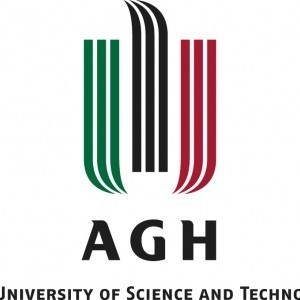Photos of university / #agh.krakow
The Electronics and Telecommunications: Network and Services program at AGH University of Science and Technology is a comprehensive and innovative engineering course designed to prepare students for the rapidly evolving telecommunications industry. The program emphasizes the development of theoretical knowledge and practical skills necessary to design, implement, and manage advanced electronic communication systems and networks. Students will gain a solid foundation in electromagnetic theory, signal processing, digital and analog communications, and network architectures, enabling them to address contemporary challenges in telecommunications infrastructure.
Throughout the course, students explore topics such as wireless and terrestrial communication systems, data transmission and networking protocols, cybersecurity in communication networks, and the integration of Internet of Things (IoT) solutions. They are also introduced to emerging technologies like 5G mobile networks, optical communications, and cloud-based services, ensuring that graduates are well-equipped to contribute to modern and future telecommunications projects. The curriculum includes hands-on training with state-of-the-art laboratory equipment and software tools, fostering practical problem-solving skills and innovation.
The program collaborates closely with industry partners and research centers, providing students with internship opportunities and exposure to real-world projects. Graduates of the program will be prepared for careers in telecommunications companies, network service providers, equipment manufacturers, and research institutions. They will possess the technical expertise to design, optimize, and secure complex communication networks, as well as the ability to adapt to continuous technological changes in the sector. The Electronics and Telecommunications: Network and Services program ultimately aims to cultivate highly qualified engineers who will shape the future of connectivity and digital communication technologies.
The Electronics and Telecommunications: Networks and Services program at AGH University of Science and Technology offers a comprehensive curriculum designed to prepare students for the rapidly evolving fields of electronic communication and information transfer. The program aims to develop advanced knowledge and practical skills in designing, implementing, and managing modern network and telecommunication systems. Throughout the course of study, students gain a deep understanding of digital communication technologies, network architecture, and protocols that underpin today's interconnected world. The curriculum covers essential topics such as signal processing, wireless and mobile communication, optical fiber networks, sensor systems, and network security. Furthermore, students explore innovative services enabled by telecommunications, including cloud computing, Internet of Things (IoT), and multimedia transmission.
Practical aspects are emphasized through laboratory classes, projects, and internships, enabling students to acquire hands-on experience with contemporary networking equipment, software tools, and real-world case studies. The program also addresses the challenges of cybersecurity, ensuring that graduates can design resilient and secure electronic communication systems. Collaborative projects with industry partners provide insights into current market trends and foster skills in teamwork and project management. Graduates of this program will be equipped to work in telecommunications companies, network service providers, electronic device manufacturing, and research institutions. They will be prepared for careers in network design, implementation, maintenance, and innovation in cutting-edge communication services.
In addition to technical expertise, the program encourages the development of analytical thinking, problem-solving, and effective communication skills, all essential for success in the dynamic field of electronics and telecommunications. Graduates will be well-positioned to contribute to technological advancements and to pursue further specialization or research opportunities. The Electronics and Telecommunications: Networks and Services program at AGH University is committed to providing a high-quality education that combines theoretical foundations with practical applications, ensuring students are ready to meet the technological challenges of the future in the electronics and telecommunications industries.
The Electronics and Telecommunications: Network and Services program at AGH University of Science and Technology requires candidates to have completed a secondary education with a strong emphasis on mathematics and physics. Applicants must demonstrate proficiency in mathematics, physics, and informatics, as these are foundational for understanding complex concepts within electronics and telecommunications. Admission criteria often include a competitive score in standardized exams or university entrance tests, especially in mathematics and physics.
The program prerequisites also typically include basic knowledge of computer science and engineering principles. Prior experience or coursework in programming languages, circuits, and networks can be advantageous. The curriculum is designed to progressively develop technical skills, starting from fundamental electronics, digital systems, and telecommunications principles, to advanced coursework in network architecture, service provisioning, and modern communication technologies.
Students are expected to participate actively in laboratory work, project-based learning, and internships, which are integral parts of the program. These practical components help students gain hands-on experience with network configuration, management, and troubleshooting, as well as with the deployment of telecommunication services. Furthermore, the program emphasizes the development of analytical and problem-solving skills, preparing graduates to address evolving challenges in telecommunications infrastructure and network security.
English proficiency may be required for international students or programs taught in English, and applicants might need to submit language certificates such as TOEFL or IELTS. Throughout the program, students are encouraged to engage with research projects, attend industry seminars, and collaborate with telecommunications companies, which enhances their practical understanding and employability.
The program aims to equip students with knowledge about modern data transmission technologies, network protocols, and service delivery models, including VoIP, wireless and mobile communications, IoT (Internet of Things), and cloud services. Graduates are prepared to work as network engineers, service engineers, telecommunications consultants, or to pursue further research or postgraduate studies. Overall, the program requirements focus on a solid foundation in STEM subjects, practical skills, and continuous professional development to meet the demands of the dynamic telecommunications industry.
The financing of the Electronics and Telecommunications: Network and Services program at AGH University of Science and Technology is primarily based on a combination of government subsidies, student tuition fees, and additional funding sources designated for research and development activities. As a public university in Poland, AGH receives substantial support from the Polish government, which covers a significant portion of the operational costs and subsidizes tuition fees for domestic students. Tuition fees vary depending on the student’s nationality and the specific regulations of the program; however, European Union students typically benefit from lower fees due to EU funding schemes and national policies promoting higher education accessibility.
In addition to government funding, the university actively seeks support from European Union structures such as the European Social Fund (ESF) and the European Regional Development Fund (ERDF), which provide grants and project funding aimed at innovative research, infrastructure development, and curriculum enhancement. These funds contribute to the modernization of laboratories, acquisition of advanced technological equipment, and the implementation of cutting-edge training modules. The university also encourages students and faculty to participate in international research projects, often resulting in supplemental funding that enhances the quality and scope of the program.
Furthermore, AGH University promotes partnerships with industry leaders in the telecommunications and electronics sectors. These collaborations often involve sponsored research, internships, and dual-degree programs, which generate additional resources that help fund the program's infrastructure and educational activities. Scholarships, grants, and financial aid programs are also available to a selected group of students, based on academic achievements, financial need, or participation in specific research projects, thus reducing the financial burden on individual students.
The university emphasizes sustainable financing models to ensure long-term development and high-quality education. As part of its strategic plan, AGH actively applies for European and national grants to continuously improve the educational environment and research capabilities. These mechanisms contribute toward maintaining a competitive and innovative curriculum aligned with the dynamic field of electronics and telecommunications. Overall, the program's financing structure is designed to support high standards of teaching, extensive research, and student development, ensuring that graduates are well-equipped for successful careers in network and telecommunications industries.
Electronics and Telecommunications: Network and Services at AGH University of Science and Technology is a comprehensive engineering program designed to prepare students for careers in the rapidly evolving field of electronic communications and telecommunication networks. The curriculum combines theoretical foundations with practical applications, focusing on the design, implementation, and management of advanced communication systems. Students gain in-depth knowledge in areas such as electronic circuitry, signal processing, data transmission, network infrastructure, and telecommunication services. The program emphasizes modern technologies including wireless communication, optical fibers, broadband networks, and Internet of Things (IoT), ensuring graduates are well-equipped to meet industry demands.
Throughout their studies, students participate in laboratory exercises and projects that develop their technical skills and problem-solving abilities. The coursework is complemented by a series of specialized modules covering network security, software engineering, and intelligent communication systems. The program also fosters interdisciplinary learning, integrating aspects of computer science, electronics, and information technology. Practical training is an essential component, often involving collaborations with industry partners, internships, and participation in research projects.
Graduates of this program are prepared for employment in telecommunications companies, network providers, electronics manufacturing firms, and research institutions. They can take on roles such as network engineer, systems analyst, telecommunication specialist, or R&D engineer. The program aims to meet the high standards of European technical education, aligning with Bologna Process requirements, and provides opportunities for mobility within international academic networks.
The faculty team includes experienced researchers and practitioners active in the fields of telecommunications and electronics, contributing to innovative teaching methods and cutting-edge research. Students benefit from modern laboratories equipped with advanced technological tools and software for simulation, testing, and development. Graduates may also pursue further studies at the Master’s and PhD levels, specializing in areas like wireless communications, network security, or embedded systems. Overall, the program seeks to produce highly skilled engineers and specialists capable of contributing to the development of modern communication technologies and infrastructure worldwide.








